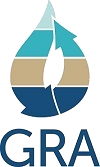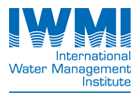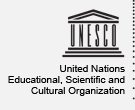Presentations
Green, Sargent
Presentation Title
Framework for the San Joaquin Valley Integrated Regional Water Management Plan
Institution
California Water Institute
Video
green
Presentation
Profile Picture

Abstract
The California Partnership (Partnership) for the San Joaquin Valley (Valley) was created by Governor Schwarzenegger in 2005 to focus attention on the challenges of the Valley in meeting the needs of its citizens and the entire state. The Partnership developed a strategic action proposal that included a mission to address water issues in the Valley. The Partnership then commissioned a Water Work Group and the California Water Institute (CWI) at California State University, Fresno to first develop a framework for a long-term San Joaquin Valley water management plan. Similarly, four Valley congressmen had previously asked CWI to develop a water plan for the Valley and the two efforts were merged. The cumulative effort is critical to identify the Valley water needs and determine water management solutions for a fifty-year planning horizon. The following is the framework summary findings: 1.) The California Water Code and the California Department of Water Resources have outlined a process for analyzing local long-term water needs and developing comprehensive water management solutions. The process involves creating integrated regional water management plans (IRWMP). The entire San Joaquin Valley should embrace this concept and adapt it further for its own purposes. 2.) The IRWMP process has three basic components: a. An assessment of conditions and water use preceding a 50-year planning time frame; b. An estimate (water budget) of water needs for the next 50 years; and c. A solutions process that analyzes every reasonable water management technique to meet various alternate futures as the technique becomes available. 3.) Significant amounts of information and integration will be required to develop and implement regional, inter-regional, basin-wide and Valley-wide plans. Information gathering and dissemination tools that outline core information needs for all participants at every level will be important. The report offers an example for consideration. 4.) The IRWMP process is a deliberative, long-term approach that will take time to develop and implement. Water crises and conflicts will continue to arise in the intervening years and may override the long-term effort. The Valley must recognize the importance of these events and be prepared to respond to them accordingly in a timely manner. An action team response approach to address such events would be useful. By example, a Partnership action team will continue to work on the Sacramento-San Joaquin Delta water export and statewide drought crisis. 5.) Two examples of how integrated assessment, planning and management solutions can work together are included within this report. They include solutions for groundwater recharge improvement that integrates land and water use and a rural water system assessment and solution strategy. Both of these water-related issues are rapidly approaching crisis level. Many good recharge soils are getting separated from surface water supplies. Access to Valley groundwater becomes more important should the lack of surface water supplies become more widespread. Rural water system operations that rely on groundwater are then faced with dwindling supplies and water quality issues and very often the local operators do not have the financial capacity to resolve the problems. Postponing resolution of these issues is not an effective option. 6.) The Partnership must engage all its members to make water an ongoing high priority if the Valley is to prosper and meet the commitments to its citizens. Water cannot be created. Its distribution is naturally uneven and cannot be moved or made available without significant social, environmental and economic cost. What we have must be treated with respect.
Figures
None Available
|












